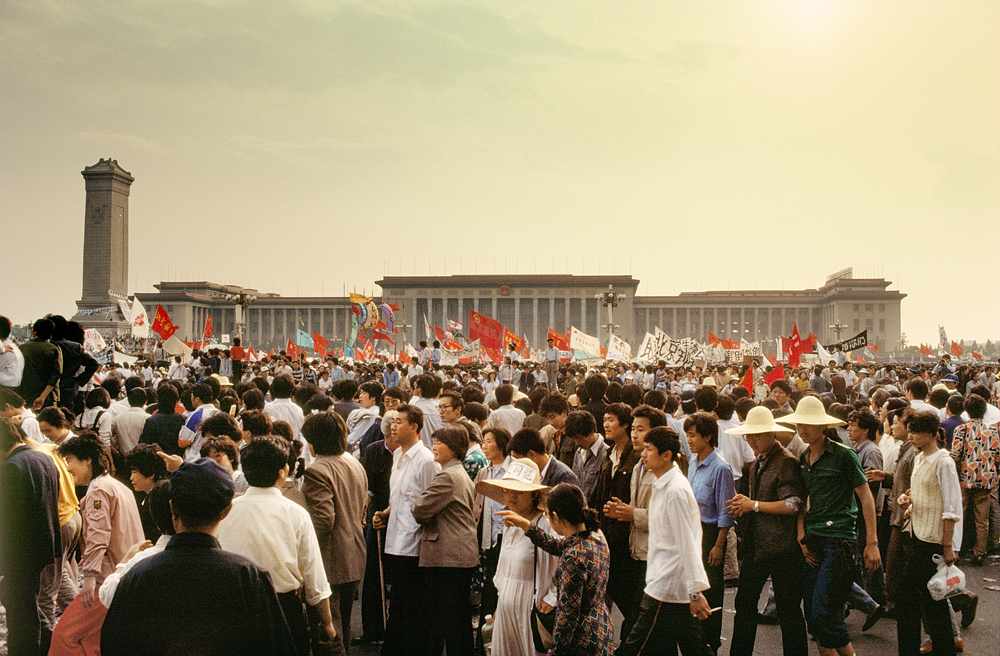With the 30th anniversary of the June 4, 1989 military crackdown on protesters approaching, many participants and observers are working to keep memories of the events alive amid government efforts to squelch them. For 30 years, the Communist Party has stifled any public mention of the events of 1989 and has not held any public accounting for the deaths that resulted nor allowed family members of those killed to publicly mourn their loved ones. In an article that is part of a six-part series in the South China Morning Post, Jun Mai writes about why the Party is so determined not to revisit that episode in the country’s history:
Perry Link, a sinologist with Princeton University, said the party’s insecurity and obsession with holding on to power made it hard for the leadership to reopen the case.
“They fear opening the case again for honest discussions of the horrors in the past could snowball into another popular revolt,” said Link, a co-editor of The Tiananmen Papers – a compilation of selected secret Chinese official documents relating to crackdown, which Beijing denounced as fake when published in 2001.
“[The leadership thinks] the cost it loses by repressing the truth is much less than the costs it stands to lose by telling the truth.”
Bao Pu, the son of Zhao’s top aide Bao Tong, said the current leadership might have to face the question of its legitimacy if it allowed people to discuss the event.
“The party’s legitimacy was lost the moment it ordered the army to open fire on the peaceful protesters … it is counting on the public to forget about it. [Source]
In another article for the same SCMP series, Josephine Ma and Guo Rui interview family members who have spent the last three decades calling for a full investigation into the deaths of their loved ones. They also look at the negative consequences that have resulted from the government’s refusal to confront the issue:
But no vindication has come. Instead, the party has stuck to its verdict, defining the pro-democracy protests as “turmoil”, “counter-revolutionary riots” and “an act against the government”.
For three decades, it has firmly resisted revisiting the period, turning its back on the reformist calls of the time and stifling debate to maintain stability and its own survival.
But observers and insiders say that the party and the country are paying a price for the three-decade-old strategy. They say that by exiling critics to the political wilderness, and by hewing to its authoritarian line, the party’s ability to face challenges will be undermined by the lack of checks and balances. It will also miss the opportunity to clear the stain on its reputation abroad by reconciling with the victims’ families while they are still alive. [Source]
June 4th is one historic episode among many that have been defined and rewritten by the Communist Party. In recent weeks, the Party has worked to impose its own version of the history of the 1919 May 4th student movement, marking its 100th anniversary this year. In The Guardian, Ilaria Maria Sala and Louisa Lim write about the moral necessity of accurately remembering the traumatic events of 1989–which Sala witnessed and Lim wrote about in her book “The People’s Republic of Amnesia”–along with other influential events from Chinese history:
With politics firmly in command over history, almost every aspect of China’s past risks becoming a battlefield. In recent years US scholars researching the history of the last imperial dynasty, the Qing (1636-1911), have been vilified by state-run Chinese newspapers for historical nihilism and imperialism. This is because their close examination of how the Qing came to conquer Xinjiang, Tibet, Mongolia and Taiwan ultimately invalidates China’s assertions that all areas under its control are “inalienable parts of China” since time immemorial.
In this way, political no-go zones are scattered throughout the long millennia of Chinese history and scholars lament how much access to archives is being restricted, in particular for topics still little explored, such as the actions and fate of Chinese collaborators of Japanese invaders during the Second World War or issues that touch upon ethnic tensions, whether in inner Mongolia or Tibet.
[…] If events that happened centuries ago are this controversial, imagine how perilous it is to walk the censored days of that Beijing spring just 30 years ago. In this climate, where silence is acquiescence, speaking of forbidden histories becomes a moral choice. [Source]
For more about the events of 1989 and how they were covered by global media, see CDT’s series of daily posts with links to original news reporting from throughout that spring.








